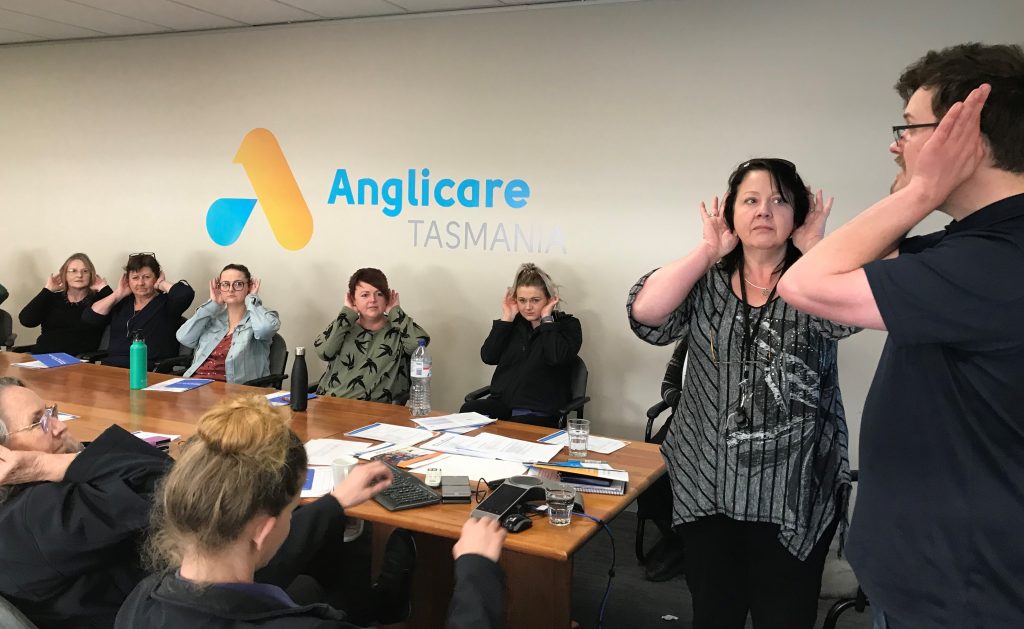Keeping our workers hearing aid maintenance skills sharp
September 19, 2019
Hearing Australia recently delivered training to keep the hearing aid maintenance skills of our home care workers sharp.
At Anglicare ongoing professional development is a priority, with regular training opportunities for all our workers to refresh skills and extend their expertise.
“It’s important for our home care team to be aware of the signs of hearing loss. And to know how to properly maintain hearing aids,” said Connie Bruckard, Anglicare’s Home Care Services General Manager.
Hearing well allows people to live life to the fullest. There is also evidence the risk of dementia rises as hearing declines.
“If someone appears to be withdrawing from social functions or does not seem to understand what you’re saying – these are signs their hearing might be a problem. This is the case even if they have a hearing aid,” explained Matthew Cameron-Rogers from Hearing Australia.
“So if somebody hasn’t understood you, be patient. They might not have heard you properly. Don’t shout. Slow down your speech a little, speak clearly and make sure the person can see your lips”.
Even if our hearing is good, all of us can misconstrue what is being said if we cannot see the speaker’s face. “This mostly happens when people are spoken to while watching television or from another room,” said Matthew.
Matthew explained a hearing aid is not a cure for hearing loss but rather a device to improve a person’s hearing.
“People wearing hearing aids need to have their hearing tested at least every two years. This is to monitor for any further hearing loss. Plus there’s a need to make sure their hearing aid is still appropriately programmed”.
Batteries should be checked weekly and replaced if necessary. Hearing aids should be cleaned at the same time. Matthew showed our support workers how to do these tasks, and for the variety of hearing aids people might be using. He also emphasised the importance of daily cleaning if a person has a cold and is producing more earwax than usual.
As with all devices, there may also be technical problems with a hearing aid. It is important to seek help if the hearing aid is still not working despite having a new battery and being cleaned.
Matthew updated our staff about technologies that may be used to get even better results from hearing aids. “You can get microphones for discrete placement on tables when you got out to restaurants. They send voices direct to your hearing aid. It’s possible also to program some hearing aids to connect through blue tooth which can really help hearing in your car”.
People who suspect they have a hearing problem are encouraged to see their doctor who will check ear health. Your doctor might refer you to have a hearing test. Here is Hearing Australia’s Free Hearing Test.
Find out about our Aged and Home Care Services.

